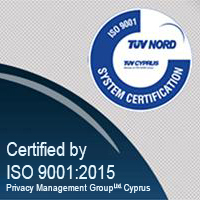New Regulations for Offshore Companies in Detail
Not completely new but definitely relevant - operational expenses incurred by a company are generally not recognised by the respective finance authority, should there by any suspicion of the applicant being a foreign company with no substance. In this context the business is often referred to as a ‘shell company’ and the approval of operating expenses refused.
This is also one of the reasons why, even in the past, offshore companies were already suitable (and will probably still be in the future) for securing assets, whereas invoicing a company abroad proved to be rather difficult.
Offshore companies are legal and will remain so in the future, although they will need to adapt to new conditions and change their structure accordingly.
In short, non-resident companies without substance will now become ‘legitimate’ entities that meet international requirements but still offer the same advantages reminiscent of the ‘good old offshore times’.
However, naturally there is no rule without exceptions – because the new regulations vary drastically from country to country and moreover there are countries with more flexible and business-friendly national laws within Non-European locations as well as within the European Union.
You can find more information on these ‘Exception-States’ in our offer on this page.
Substance requirements, cfc-rules – what is really behind this?
The aim of the CFC-Rules is, simply put, to prevent the shifting and parking of profits in ‘tax havens’ by directly attributing certain types of profits and/or the profits of certain forms of companies to the shareholders of a company. Recorded profits of a foreign company should in this way be treated as if they were transferred directly to the shareholder(s) and therefore taxed in the domicile location of the shareholder(s).
An example to illustrate this
A company with its seat in the Netherlands is a shareholder of an offshore company in a so-called tax haven. In this case the CFC-Rules should ensure that the profits of the offshore company associated with the Netherlands company will be taxed in the Netherlands.
Likewise important to know!
To ensure this aim is achieved, the OECD released some recommendations. However, because these are not legally binding, countries decide on a national level on the implementation of these recommendations. This is why countries such as EU-member Cyprus or Panama, as well as many other states, have evidently more liberal and business-friendly laws.
The Recommendations Of The Oecd
Simply put, the recommendations are a basic introduction of concrete guidelines for ‘substance requirements’, targeted at specific companies. In simple terms, for companies based in low-tax countries and tax havens this means in future:
- Employment of a local director (local management & control),
- Maintaining local permanent premises,
- The company must be available through telephone and internet,
- Payment of corporation tax (if applicable),
- Comprehensive bookkeeping and accounting obligation.
Incidentally, a country can impose substance requirements on locally based companies as well as foreign companies that have a significant stake in domestic companies. However, every country regulates the implementation of the OECD recommendations into national law independently, which has already resulted in enormously varied interpretations of these.
Taxation, substance requirements, rights and obligation
To be able to navigate international business without hindrances, offshore jurisdictions will in future also impose general requirements on the substance of companies, whereby the taxation of profits earned abroad or from foreign companies will remain unaffected (Keyword: territorial taxation).
Particular current examples include Panama, the Seychelles, and the emirate Ras Al Khaimah in the United Arab Emirates.
Why should we look at this development positively?
In future, it will be relatively easy for foreign companies to either prove the required existing substance or create it in a very short time – Keyword: Management-Package.
If this step is made and the substance requirements are fulfilled in this way, the resulting CFC-Rules actually only present advantages:
- Recognition of the company abroad;
- Clear, even cross-border, tax regulations;
- Clearly distinguishable features when choosing a location;
- New opportunities in the context of relocation;
- Legally secure regulations in regard to ‘local director’ or ‘Nominee-Director’;
- More transparency also means less input during account opening.
The recommendation for a foreign company to employ a local director at the company’s country of domicile, already makes logical sense from a tax perspective – because the old rule still applies: the location of the decision-making power of the company, also called management and control, ultimately determines tax residency.
Conclusion: There are a multitude of good reasons to operate in business-friendly locations with liberal regulations in the future. Particularly when combined with a residential relocation, the chances and opportunities are unlimited!







